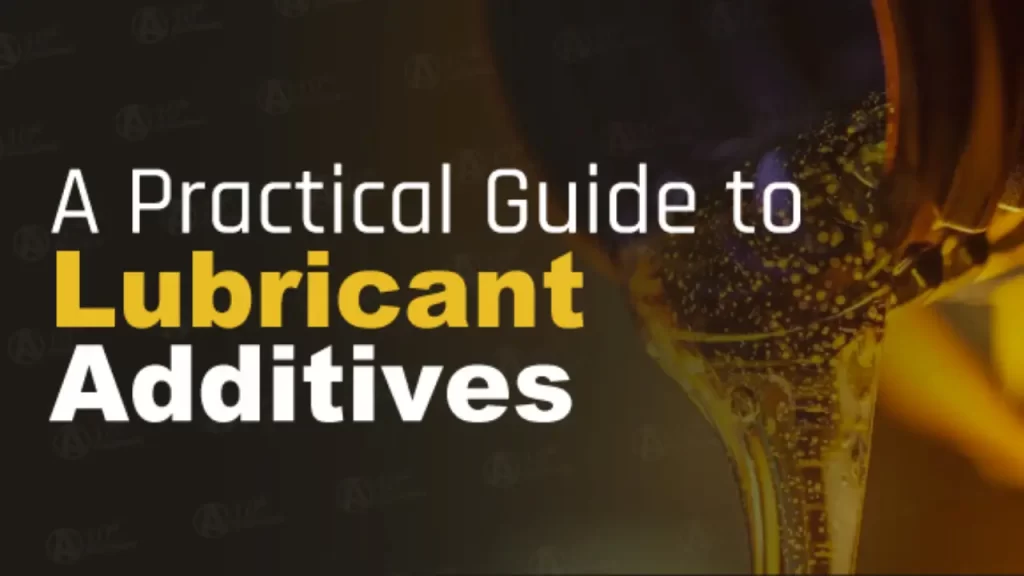- Armor Blog
- Company
- A Practical Guide to Lubricant Additives
Benefits of Lubricant Additives

Lubricant additives are used to reduce friction and wear in the lubricating system. The most common additive is graphite, which is a black powder that has been ground into microscopic particles. Graphite does not dissolve in oil, so it remains in the system for a long time.
Some lubricant additives may cause harm if handled or stored improperly. Why you should avoid them in your home is explained in this blog.
Additives improve lubricant performance. Oil, greases, and other lubrication products reduce friction, thus protecting moving parts from wear and corrosion. Adding specific colours or textures to a product can also improve its appearance.
Mechanics of Lubricant Additives
Lubricant additives are used to improve the performance of a lubricant. ZDDP enhances wear resistance and prevents metal-to-metal contact when used as an anti-wear agent.
Silicon
During regular engine operation, silicon forms a protective layer on metal surfaces to prevent corrosion. As a result, internal components like piston skirts are not worn out prematurely due to repeated heat cycles.
Titanium
A thin film coating formed by titanium on surfaces where carbon adheres more readily than other materials (such as pistons) has been shown to reduce carbon build-up in combustion chambers.
To improve the performance of lubricants, additives are used. These additives can be categorized as viscosity-increasing agents and friction-reducing agents.
Among them, there are anti-wear, corrosion, thermal, and oxidation additives. Despite their differences, each type reduces friction between moving parts.
Types of Lubricant Additives Used:
- Chemical additives are added to base oils to improve their quality, suppress some of the unwanted traits of the base oil and maybe impart new properties.
- Turbine oil is distinguished from hydraulic oil, gear oil, and engine oil by the additives used.
- Lubricant additives come in a variety of shapes and sizes.
The Purpose of Lubricant Additives
Lubricant additives are used to improve the performance of lubricants. They can be divided into two categories: Long-term benefits and short-term additives.
- Long-term additives, like rust preventatives, corrosion inhibitors, and anti-wear agents, have been around for a long time.
- In the short term, additives stop wear immediately, but they’re not effective until the part actually contacts the environment.
- In addition to increasing the viscosity of oils, lubricant additives also conceal errors or flaws. Under certain conditions, such as high temperatures and/or high loads, they can also improve performance and durability.
Functions of Lubricant Additives
You can make your lubricants perform better with lubricant additives. Friction and wear are reduced, efficiency is increased, equipment life is extended, and noise is reduced. The most common benefits include:
- The main benefit of using additives is reducing friction and wear in the lubricating system.
- Most additives are able to improve corrosion protection and extend the life of a lubricant.
- They can also prevent some types of engine damage, such as sludge build-up or deposits on bearings or seals.
The functions of Additives are to improve the properties of present base oils by using antioxidants, corrosion inhibitors, anti-foam agents, demulsifying agents, pour-point depressants, viscosity index improvers, detergents, metal deactivators, and tackiness agents.
Ensure the lubricant additives are compatible with the metal components, seals, and existing lubricant.
In Armor, we know lubrication systems. We use several additives in our products to create lubrication that protect your machines. If you have any questions, do not hesitate to contact us or send a message on WhatsApp. Our sales team will get in touch with you and answer all your concerns.




 Spear Lubricants
Spear Lubricants Armada lubricant
Armada lubricant Ace lubricants
Ace lubricants Perfect lubricants
Perfect lubricants Enzo lubricants
Enzo lubricants Lawrence lubricants
Lawrence lubricants